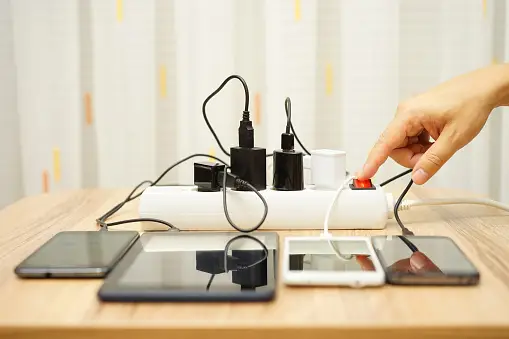A good night’s sleeping can feel like an unachievable goal for many individuals in our fast-paced society, when stress and pressure appear to be unavoidable companions. It is impossible to overestimate the significance of getting enough good sleep for our physical and mental health as well as our general productivity.
Don’t worry if you wake up drowsy and exhausted, find it difficult to quiet your racing thoughts, or find yourself tossing and turning at night. This in-depth manual will cover a wide range of strategies to assist you in taking back your evenings and reaping the benefits of sound sleep that is deep and peaceful. Get a better night’s sleep by following these suggestions:
Table of Contents
Establish A Calm Sleeping Environment

Your bedroom is the first step towards a more restful night’s sleep. Think of your bedroom as your personal haven of calm. Keep it tidy, keep the temperature in the room at a suitable level, and make an investment in a high-quality double bed mattress and pillows that will support your particular sleeping demands.
Before going to bed, turn down the lights to let your body know it’s time to relax. For those who are sensitive to light, the best light-blocking sleep mask can also be a game-changer. To improve the quality of your sleep, they offer a full blackout experience.
Create A Regular Sleep Schedule

Our sleep-wake cycles are an example of how our bodies thrive on regularity. Even on weekends, make an effort to go to bed and wake up at the same time every day. It is simpler to go to sleep and get up naturally thanks to this constancy, which also helps to balance your body’s internal clock. A consistent sleep routine can greatly enhance the general quality of your sleep over time.
Watch Your Nutrition And Drink

It is impossible to overestimate the importance of maintaining a healthy diet and drinking enough water for better sleep. The foods we eat during the day can significantly affect how well we sleep. Avoiding large or spicy meals right before bed is essential because they can cause indigestion and discomfort, which can disturb your sleep. Reducing stimulants such as caffeine and nicotine in the hours before bed can also help with a more seamless sleep transition.
Although having a nightcap might seem like a good way to relax, alcohol can disrupt your sleep pattern and cause restless, sporadic sleep. While staying properly hydrated during the day is crucial, it’s best to cut back on liquids close to bedtime to reduce disruptions from late-night toilet breaks.
Disconnect and unplug

Our daily use of electronic gadgets, including computers, tablets, and smartphones, exposes us to artificial blue light, which suppresses the generation of melatonin and throws off our regular cycles of sleep and wakefulness. We may help our bodies transition into a more relaxed state by purposefully putting down our devices at least one hour before bed. By purposefully cutting off, we establish a buffer between the digital world and the peacefulness of bedtime, allowing our minds to relax and letting our bodies know it’s time to get ready for sleep.
During this tech-free time, relaxing activities like reading a book in person or practicing mindfulness can help to further establish a healthy bedtime routine, which will ultimately lead to a more restful and undisturbed night’s sleep. Disconnecting from technology turns into a powerful ritual that gives us the mental room we need to go from the stresses of the day to the peace of the night.
Use Calming Methods

The bed specialists at Simba assert that practicing relaxation prior to bedtime is crucial for a restful and improved night’s sleep. Think about including gradual muscle relaxation, guided meditation, or deep breathing exercises into your bedtime routine. These techniques aid in mental calmness, stress reduction, and the development of a relaxed state that facilitates easy sleep.
Get Moving During The Day

There is evidence that regular exercise enhances the quality of sleep. On most days of the week, try to get in at least 30 minutes of moderate activity, but pay attention to the time. Too much exercise right before bed might have a stimulating effect that makes it more difficult to fall asleep. To get the benefits of sleep, find an exercise you enjoy doing, like dancing, yoga, or brisk walking, and incorporate it into your daily routine.
Control Your Anxiety And Stress

Anxiety and persistent stress can be significant barriers to getting a decent night’s sleep. Developing stress-reduction strategies, such as journaling, engaging in mindfulness exercises, or getting professional assistance when necessary, can significantly reduce the amount of things that interfere with sleep. One way to improve the conditions for healthy sleep is to address the underlying causes of stress and worry.
Developing healthy living habits, keeping a regular sleep schedule, and setting up a suitable sleep environment are all important steps in getting a better night’s sleep. You can create a conducive environment for deep sleep and wake up feeling rejuvenated and prepared to take on the challenges of a new day by implementing these suggestions into your daily routine. As you set out on this adventure to discover the secrets of restful sleep, sweet dreams are in store.
